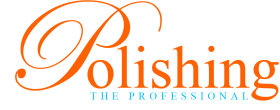
When interviewing for a job, it is a safe bet they will ask about your strengths and weaknesses. It is an intelligent question that covers a lot of important information. How you answer can reveal whether you are qualified for the position.
It is an opportunity to demonstrate why you are a top candidate for the job. Express your personality and describe what you can contribute to your potential new employer.
Are you ready to talk about your strengths and weaknesses? Use these tips to develop a concise and compelling case that will convince the hiring manager that you are a great match.
Discussing Your Weaknesses During a Job Interview:
- Be prepared. You will make a more favorable impression if you rehearse your response rather than trying to invent something on the spot. Write some talking points and keywords that you want to use to promote your skills.
- Stay relevant. Pick weaknesses related to a work setting and the position you are seeking. Review the job description. Customize your answers as much as possible to have it apply to the job just in case.
- Focus on growth. While discussing possible flaws, you can still end on a high note. Let the interviewer know what you have learned from past experience and what you are doing to strengthen your capabilities and performance.
- Avoid deal breakers. Avoid meaningless clichés, like saying you are a perfectionist, and think twice about saying anything that would remove you from consideration. For example, struggling to meet deadlines is challenging to overlook if you want to be a tax accountant.
- Tell a story. Use anecdotes to illustrate your strengths and weaknesses. Follow the usual guidelines for compelling stories, including sticking to the point and proceeding logically.
- Do research. If you are having trouble evaluating yourself, ask your friends and coworkers. You can also find many resources online with lists of sample strengths and weaknesses. Either way, do not sell yourself short
Discussing Your Strengths During a Job Interview:
- Sound confident. Much of the advice for talking about weaknesses apply to strengths, too, with some additional considerations—work at sounding assured without coming across as arrogant or underestimating yourself.
- Stand out. Maximize this opportunity to let the interviewer know what special qualities you bring. Focus on skills and traits closely matching the job description, and work carefully on your presentation. Showing that you have the skills it takes to fulfill the position will depend on how you choose to share your qualities.
- Be truthful. Resist any temptation to exaggerate. In fact, ensure you can back up your claims and deliver on what you’re promising if you do get hired.
- Be specific. While you can find sample language online, you must tailor your strengths to your situation. Clarify what leadership abilities or software skills you possess. Tell stories that prove your accomplishments in past positions.
- Bring a list. While you will probably want to discuss only 2 or 3 specific strengths in any interview, it also helps to have a few backup options. You may discover information during the interview that makes one of your stories more or less persuasive. Be ready to adapt to the interviewer’s lead and where it goes.
- Look ahead. Spell out how you can use your talents in your new workplace if the company decides to bring you on board. Your interviewer wants to know what positive impact you can have on them.
- Show enthusiasm. Attitude matters as much as hard and soft skills. While delivering your message, please consider how you are saying it. Let your interest and excitement show.
Walk into your following interview prepared to discuss your strengths and weaknesses. You will be more likely to receive a job offer and have a sound basis for evaluating whether the position will be satisfying for you.
JUL
2023
